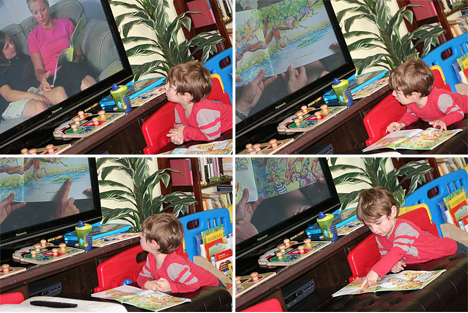5 Focuses For Creating a Learning Environment in the Home
When it comes to setting the stage for learning, individuals on the Autism Spectrum need to continue their learning experiences even after school. This requires responsibility from therapists, caregivers, and parents. Each must work together to help create a learning environment in the home that continues to provide opportunity to expand the vital skills a child is working on. This includes setting up a home environment, understanding your child’s classroom setup or making suggestions at their after school program.
Here are five goals to focus on when evaluating a school-related learning environment in the home for children with Aspergers or HFA.
1. Increase Engagement:
It’s ok for kids to take a break after school and have some down time, but preventing total shutout is important. Whether it is a play activity or helping with homework, making this part of the routine will assist with expectations that the child will need to interact for an expected amount of time.
2. Increase Communication:
Asking the question “how was your day?” rarely gets the response desired. To get them to chat, incorporate out of the ordinary or silly situations to spark spontaneous requests or comments. (e.g. carrying an umbrella when it isn’t raining or dressing up the dog before your child gets home). Sometimes a child may need a prompt to take note about the change in environment, but that is ok! It increases the opportunity to communicate either way
3. Promote Independence:
Use visual charts to show the steps expected to follow directions without reminders. This is especially useful for morning and bedtime routines. It may take some time to teach the sequence to complete the task. However, using the visual will allow the child to find the solution on their own rather than get in trouble for not completing the task.
Providing the weekly Medical Blogs are the team of professionals, doctors, occupational and behavioral therapists at San Antonio’s premiere Autism Diagnostic Clinic, the Autism Community Network.
Contributors include:
Executive Director Dr. Loree Primeau
Medical Director Dr. A Patricia Del Angel
Training and Research Director Dr. Berenice de la Cruz
Carrie Alvarado, OTR, PhD©, DIR/Floortime-Certified
Lupe Castaneda, MS, BCBA
Adriana Sanchez, MA, BCBA
Dr. Gayla Aguilar, OTR, OTD, C-SIPT
Megan Kunze, MA, BCBA
The ACN teams works to maximize the potential of children with autism through their administrative, clinic, training and development departments. Their expertise on Aspergers Syndrome is offered to you through aspergers101.com.





